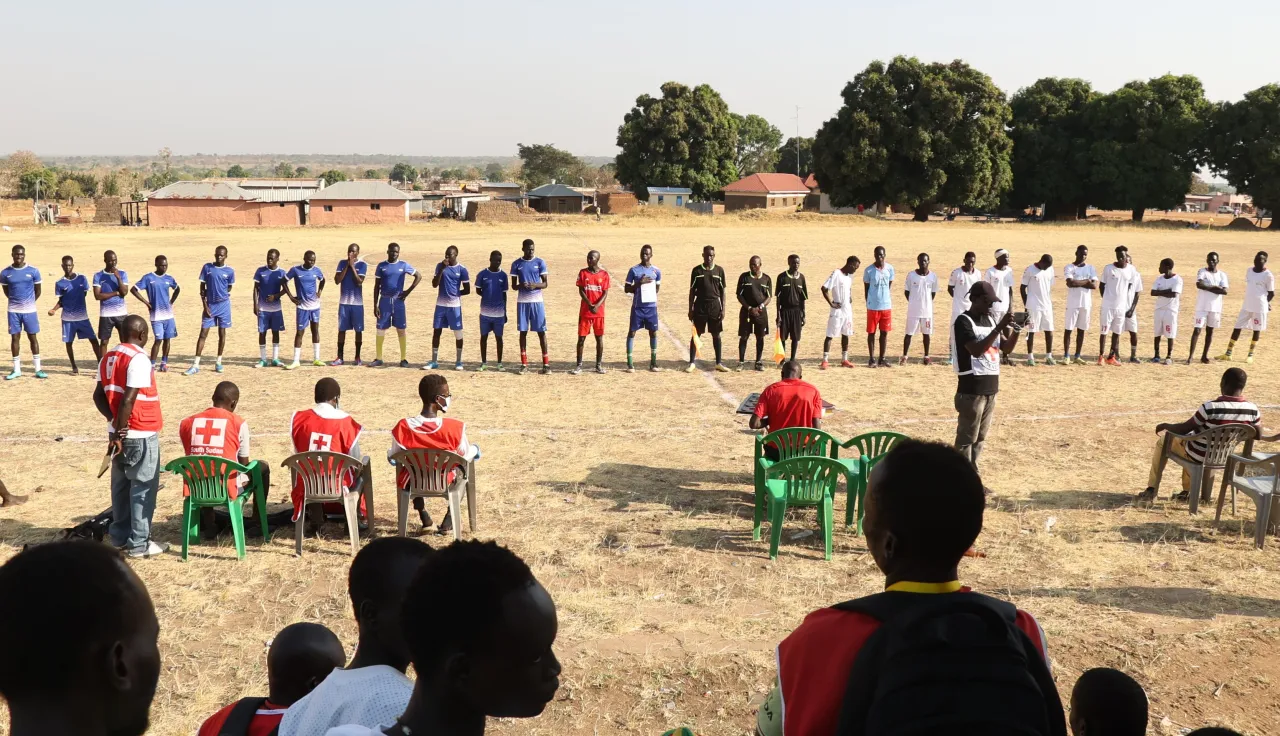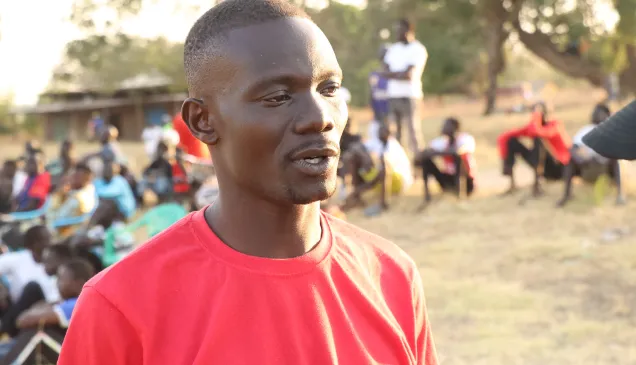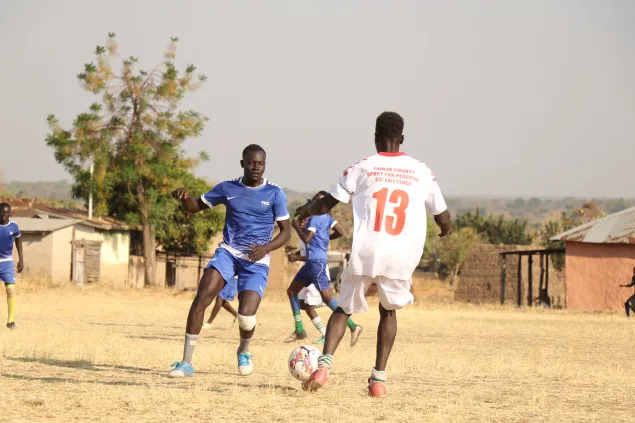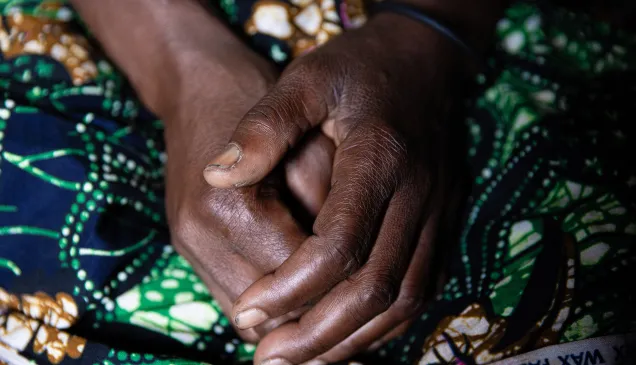South Sudan: Using sports and arts to combat sexual and gender-based violence

In South Sudan, the International Committee of the Red Cross (ICRC) and the South Sudanese Red Cross (SSRC) are finding creative ways to raise awareness about sexual and gender-based violence (SGBV) and reduce stigma – through activities such as football and drama.
“Welcome to the sexual and gender-based violence football game. It’s the first tournament of its kind here!” announces the speaker. On a hot February afternoon, Downtown football team plays against Blue Star team in Lainya, a small town in South Sudan located four hours from the Ugandan border.
The region is affected by a non-international armed conflict between groups fighting, as well as intercommunal violence between cattle herders and farmers.
“It’s excellent to sensitize young people about this major problem that affects us all,” highlights Simon Meskin, a teacher watching the game. “Many women risk being assaulted when they walk long distances to fetch firewood or collect water,” he explains. Winnie Victoria, a local student, can’t agree more. “We are afraid to go into the forest,” she says. Many girls her age are also scared, as “cases of rape are rampant”, according to Meskin.

Winnie Victoria speaking to the ICRC.
In 2024, the ICRC, in partnership with the South Sudanese Red Cross Society (SSRC), organized awareness-raising sessions on sexual and gender-based violence to more than 5,000 community members in nine locations across the country, including Lainya.
The organization also provided direct support to approximately 36 survivors of sexual violence – offering mental health relief, cash assistance, and training for 37 medical staff from health facilities in Upper Nile and Central Equatoria on the clinical management of rape.
Treatment within the first 72 hours
On the football pitch, surrounded by mango trees, the referee blows the whistles to announce half-time. The players take a short break, and the energy of the match fades into murmured conversations. Nearby, two women are deep in discussion. One, a health worker, explains the urgency of treatment: "Every victim of sexual violence should receive medical care within the first 72 hours of an assault."
James Juma, a radio journalist listening in, agrees. “There is not enough awareness about this. We need to amplify these messages through our radio stations,” he says.

James Juma speaking to the ICRC during the football match.
Earlier in the day, in a nearby house built from dried earth walls and covered with tarpaulins, a group of SSRC volunteers held a discussion with around 30 community members.
During the discussions, a SSRC facilitator presented two images: The first one showing a woman left abandoned in the forest after being raped; the other depicting two men harassing another woman.
“Is that woman responsible for what happened?” one of the volunteers asks the stunned participants.
Breaking the stigma
“Communities should support survivors of sexual violence, not stigmatize them,” explains Charles Bahari, an SSRC volunteer. In South Sudan, discussing sexual violence remains taboo, and survivors often fear reporting cases due to stigma and ostracization.
SSRC volunteers like Bahari, alongside ICRC’s sexual violence specialist Salume Kwaje, create safe spaces for people to talk about these issues without fear.
But change is happening
Sexual violence is a serious humanitarian concern in South Sudan, where years of conflict and intercommunal violence have normalized it among weapon bearers and civilians alike.
Harmful social norms, including victim-blaming, only make matters worse. Survivors often face stigma, family rejection, divorce, and isolation, leaving many too afraid to seek help. The long-term consequences can be devastating, including unwanted pregnancies from rape.

By using sports and arts as a platform for change, the ICRC and SSRC are working to shift mindsets - one conversation, one football match, and one drama performance at a time.



